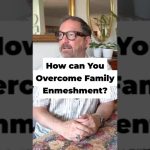Healing from Emotionally Immature Parents: Trauma Therapy for Finding Your True Self
Trauma-informed therapy for those who’ve spent a lifetime adapting to others’ emotional needs while losing touch with their own truth.
Have you ever felt like you’re playing a role rather than living as your authentic self? Perhaps you’ve become so skilled at anticipating others’ needs that you’ve lost touch with your own desires and feelings. This shape-shifting quality isn’t a personality flaw—it’s a brilliant survival strategy you developed in response to emotionally immature parenting.
Before therapy, many of my clients describe feeling like shadows of themselves—constantly tense, doubting their perceptions, and emotionally exhausted from trying to earn love through usefulness or perfection. After beginning the healing journey, they experience moments of genuine calm, self-trust, and curiosity about who they truly are beneath the adaptive layers.
The Physical Impact of Growing Up with Emotionally Immature Parents
How Your Body Holds the Trauma of Conditional Love
“I was always the good one, the responsible one,” shared Michael, a client in his early thirties. “I managed everyone’s emotions, made sure no one was upset, and completely lost myself in the process. I came to therapy feeling hollow—successful on paper but disconnected from any sense of what I actually wanted.”
Over our months working together, Michael explored how he took on the roles of the golden child and the family hero, and he began to notice the physical sensations that arose when he abandoned his authentic self—the tightness in his chest when agreeing to things he didn’t want, the knot in his stomach when silencing his true thoughts. These bodily signals became his compass, guiding him back to his true self.
“The first time I told my mother ‘no’ about a family obligation, I felt like I might die,” he recalled. “But I stayed with that feeling instead of rushing to fix it. And I survived. Something shifted in me that day—I realized I could honor my needs and still be worthy of connection.”
The Psychological Effects of Emotionally Immature Parenting
How the “Role Self” Develops as a Survival Strategy
Growing up with emotionally immature parents often means learning early that your genuine feelings, needs, and perspectives aren’t welcome. Instead, you discover which version of yourself receives approval, attention, or simply avoids criticism. This creates what psychologists call a “role self”—a curated identity that helps you navigate an emotionally unsafe environment.
Your body often registers this disconnect before your mind does, sending signals that something isn’t right. Pay attention to where you lose energy in relationships—particularly with your parents or others who remind you of them. Do you feel inexplicably drained after interactions? Does your chest tighten when certain topics arise? Do you find yourself automatically shifting into people-pleasing mode, even when you’ve promised yourself you wouldn’t?
These physical and emotional responses are valuable messengers, highlighting moments when you’re betraying your authentic self to maintain connection or avoid conflict.
The Cycle of Idealization and Devaluation in Childhood
One particularly confusing aspect of emotionally immature relationships is the cycle of idealization and devaluation—what many now call “love bombing” followed by criticism or withdrawal.
“My father would put me on a pedestal one day, telling everyone (but me) how brilliant and special I was,” another client explained. “Then suddenly, I’d do something that disappointed him, and I’d be subject to days of criticism or silent treatment. I grew up addicted to those moments of being the golden child, even though they never lasted.”
This inconsistent reinforcement creates a powerful attachment pattern, where you find yourself craving the validation that comes from being idealized while simultaneously fearing the inevitable crash that follows. It’s a cycle that can keep you tethered to relationships that ultimately deplete rather than nourish you. This is what can lead to what we think of as a trauma bonded relationship.
The children of emotionally immature parents tend to either become “maximizers or minimizers”. Maximizers tend to blame others for their problems, their feelings, and expect other people to change. Minimizers ask themselves what they can do to change, to make the situation better. Minimizers take responsibility, sometimes too much, and seek to improve themselves.
Therapeutic Approaches for Healing from Emotionally Immature Parents
In our work together, we focus on creating space between what happens and how you respond—a pause where your authentic self can emerge. This isn’t about dramatic confrontations or complete family estrangement (though boundaries around contact may be necessary for some). Instead, it’s about developing an internal sanctuary where your true feelings and needs can exist without immediate judgment or suppression.
This process often begins with simple awareness practices:
Mindful Awareness of Self-Abandonment Patterns
When you find yourself shifting into people-pleasing mode or feeling anxious about expressing a preference or opinion, simply notice it happening. “I’m abandoning myself right now” is a powerful recognition that creates space for change.
Body-Centered Trauma Healing
Throughout the day, especially before and after interactions with emotionally immature people, take a moment to scan your body. Where do you feel tension? Where do you feel open and relaxed? Your body often knows your truth before your mind does.
Rediscovering Your Authentic Preferences
If you’ve spent years focusing on others’ needs and preferences, you may struggle to identify your own. Start small—what foods do you actually enjoy? What music makes you feel good? Which activities energize rather than deplete you?
Building Authenticity Through Small Steps
Test expressing small truths in safer relationships. This isn’t about dramatic revelations but about building the muscle of authentic self-expression. Maybe it’s saying “Actually, I don’t enjoy that movie” or “I’d prefer to go somewhere quieter.”
Specialized Therapy Methods for Adult Children of Emotionally Immature Parents
In our work together, I offer several approaches that help you reconnect with your true self:
EMDR Therapy for Releasing Old Patterns
EMDR therapy isn’t just about processing past trauma—it’s about freeing your nervous system from old patterns that keep you stuck in survival mode. When we release these patterns, there’s more space for your authentic self to emerge.
Attachment-Focused Therapy for Relationship Healing
Attachment-focused therapy helps you understand how your early relationships shaped your sense of self and safety. By exploring these patterns with compassion, you can develop more secure ways of connecting—both with yourself and others.
Mindfulness-Based Trauma Therapy
Mindfulness-based practices teach you to observe your thoughts and feelings without immediately reacting to them. This creates the space needed for your authentic voice to emerge from beneath the noise of should’s and expectations.
Somatic Therapy for Embodied Healing
Somatic awareness reconnects you with your body’s wisdom. Many of us learned to override physical sensations and emotions to maintain connection with emotionally immature caregivers. Learning to listen to your body again is a crucial step in reclaiming your authentic self.
Processing Grief as Part of Healing from Emotionally Immature Parents
As you begin reconnecting with your authentic self, you may encounter unexpected grief—mourning for the childhood you didn’t have, the parent-child relationship you deserved but didn’t receive, or the years spent disconnected from your true self.
This grief is a natural and necessary part of the healing process. It acknowledges the real losses you’ve experienced while creating space for something new to emerge. Allow yourself to feel this grief without rushing through it or dismissing it as self-pity. Your losses are real, and acknowledging them is part of honoring your true experience.
Building Authentic Relationships After Emotionally Immature Parenting
While working on your relationship with emotionally immature parents may be important, sometimes creating healthy distance is what you really need. Equally crucial is surrounding yourself with people who support and encourage your authentic self-expression. These relationships provide a contrasting experience that helps you recognize the difference between fitting in (changing yourself to be accepted) and belonging (being accepted as you are).
“Finding friends who actually wanted to know the real me was revolutionary,” a client shared. “It felt terrifying at first to express opinions or set boundaries, but when these new friends responded with respect and interest rather than criticism or rejection, it helped me see how unhealthy my family dynamics really were.”
These healthier relationships serve as a template for what’s possible, gradually rewiring your expectations and helping you recognize when you’re slipping into old patterns of self-abandonment.
My Approach to Therapy for Adult Children of Emotionally Immature Parents
I don’t just listen—I help you feel safe in the silence too. My approach is grounded in deep respect for your unique experience and the wisdom you already carry within you. I understand that healing isn’t about “fixing” you—it’s about removing the obstacles that prevent you from accessing your innate capacity for growth and connection.
Many clients tell me they appreciate my balanced approach: I offer both emotional validation and practical guidance. I won’t rush you toward insights you’re not ready for, nor will I let you remain stuck in patterns that no longer serve you. Together, we’ll find the pace that feels right for your healing journey.
As an LGBTQ+ affirming therapist, I create a space where all aspects of your identity are welcomed and honored. Your authentic self includes every part of who you are, and our work together will embrace that wholeness.
Frequently Asked Questions About Healing from Emotionally Immature Parents
How do I know if my parents were emotionally immature?
Common signs include: they prioritized their emotional needs over yours; they were inconsistent (loving one moment, rejecting the next); they struggled with emotional regulation; they had difficulty seeing you as separate from them; they needed you to play specific roles (the responsible one, the perfect one, the peacemaker); and they rarely, if ever, apologized or acknowledged their mistakes. In therapy, we can explore these patterns and their impact on your development.
Can I heal while still maintaining a relationship with my parents?
Yes, many clients find ways to maintain contact while developing healthier boundaries and expectations. The goal isn’t necessarily to change your parents or confront them, but to change your relationship with their behavior. That said, some clients do find that temporary or permanent distance is necessary for their healing. We’ll work together to find the approach that best supports your well being.
How long does this type of therapy take?
Healing from emotionally immature parenting is a process that unfolds over time, not a quick fix. Most clients notice meaningful shifts within 3-6 months of consistent therapy, with deeper integration continuing beyond that timeframe. Remember that you’re working to rewire patterns that developed over decades—be patient with yourself as you grow.
Will I ever stop seeking approval from others?
While the need for external validation may never completely disappear (we’re social beings, after all), therapy can help you develop an internal sense of worth that isn’t dependent on others’ approval. Over time, clients report making choices based on their authentic desires rather than anticipated approval, even if the approval-seeking instinct briefly appears.
How do I start healing if I’m still financially dependent on my parents?
This is a common situation that requires thoughtful navigation. In therapy, we can develop strategies for protecting your authentic self while managing necessary dependencies. This might include building emotional support outside the family, creating mental boundaries, and developing plans for increasing independence when possible. Your healing can begin even before complete autonomy is achieved.
Begin Your Journey to Authentic Self-Discovery
Developing your true self isn’t a destination but a lifelong journey of increasing self-awareness and authentic expression. There will be setbacks and moments when old patterns reassert themselves—particularly during stressful times or significant family events.
When this happens, approach yourself with the compassion and understanding that may have been missing in your childhood. The goal isn’t perfect authenticity but a growing capacity to recognize, value, and express your true self, even in challenging relationships.
Remember that your authentic self wasn’t lost or destroyed by emotionally immature parenting—it was simply hidden beneath protective layers that served an important purpose. With patience, awareness, and support, you can gradually create the internal safety needed for your true self to emerge and thrive.
You don’t have to navigate this journey alone. If you’re ready to explore what it means to belong as your authentic self—to embrace both your strengths and vulnerabilities—I’m here to walk this path with you. Together, we can create the space for your true self to emerge, one gentle step at a time.









